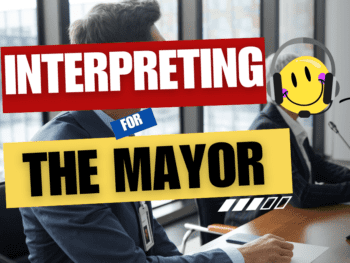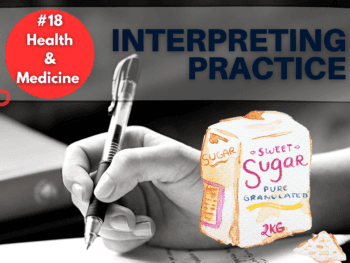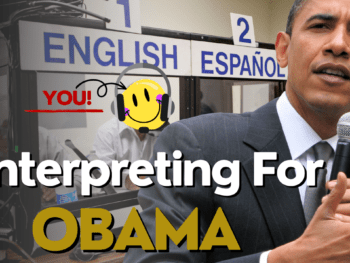This new note-taking exercise will help you practice your consecutive interpreting skills. This speech is about the English language and its history. Note: The Speech starts STRAIGHT AWAY!
Topic(s): English, Linguistics, Language History
Terms: Ethnologue (journal), lingua franca, Anglo-Saxon, Celtic, Norse, Norman, loan words
Sources:
- The Cambridge Encyclopedia of the English Language, by David Crystal | BUY it here (UK 🇬🇧) or here (US 🇺🇸)
- https://www.ethnologue.com/language/eng
Also check these books to learn and practice interpreting.
Good For Practicing:
- Interpreting note-taking
- Simultaneous interpreting
- Non-standard accents
Also available on Speechpool.
If you’ve found this post helpful or think it could be useful to a friend who perhaps is – or is planning to become – an interpreter, please kindly consider buying me a coffee by using the button below:
I put all my heart and soul into the content I produce in order to help my fellow linguists set foot in the industry. Most of what I do is available to everyone for free.
Donating is 100% optional, but greatly appreciated. A short espresso will do! ☕
Script*:
*Please check the script only after you’ve done the note-taking exercise, otherwise that’s cheating! 🙂
‘There is little doubt that English is the most widely spoken language in the world today. While it surely isn’t the most spoken language according to number of native speakers – that 1st place belongs to Chinese Mandarin –, when you take the number of people who have English as their mother tongue and add up the number of people who speak it as a second language, then, according to the Ethnologue journal, English easily becomes the most spoken language on Earth.
In a sense, it has become the world’s lingua franca. Nowadays, people all over the globe are able to communicate with each other in English. And we can only expect the numbers to rise, as English is now a compulsory course in the public education system of so many countries, even if it’s not the country’s official language.
But have you ever wondered how this massively popular language came into existence? And what other languages had the biggest influence in the development of English?
English is a member of the western branch of the Germanic family of languages. Before the Anglo-Saxon invasions of the 5th century, the languages spoken in British Isles belonged to the Celtic family. Surprisingly, there is very little Celtic influence in modern English.
Old English, which used to be known simply by Anglo-Saxon, has been highly influenced by Latin, and that major influence has persisted throughout most of the language’s history.
Then came the Viking invasions, which started in the 8th century and even resulted in a 25-year period in which England stayed under Danish rule. For that reason, the Norse language has also had an important impact.
However, and interestingly enough, the language that perhaps has influenced English the most is French. This is due to the Norman invasion, which saw the rise of French (more specifically Norman French) in the corridors of power.
The English and the Normans have dwelt together for a number of centuries, and French ended up having a major impact in the development of the English language – not only in terms of vocabulary, but also in the spelling. A famous example is the very word ‘queen’, which used to be spelled ‘c-w-e-n’. It’s thanks the Normans we now spell ‘queen’ the way we are all familiar with.
English kept evolving over the centuries, and over time it incorporated loan words that came Greek, Latin and French, but also from other languages, such as Italian, Spanish, Portuguese, Dutch, Turkish and so many others.
Think about the following sentence: ‘The entrance for the lottery tickets was obstructed, so I bought tobacco instead’. It can be almost hard to believe, but virtually every word in this sentence is in fact a loan word from another language.
Either way, once a language in development being influenced by all these other foreign languages, English is now the main influencer of most modern languages. Equally, for better or worse, it’s also the language that currently keeps the entire world connected.’














 Interpreting Training Exercise | Music History – Recordings
Interpreting Training Exercise | Music History – Recordings